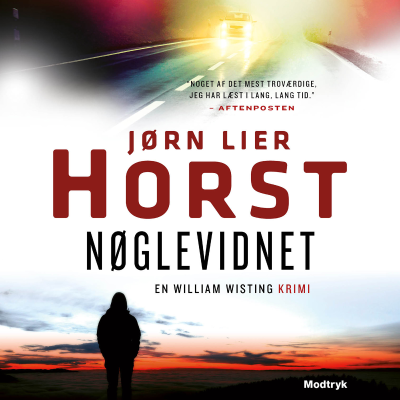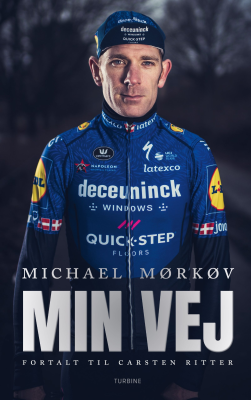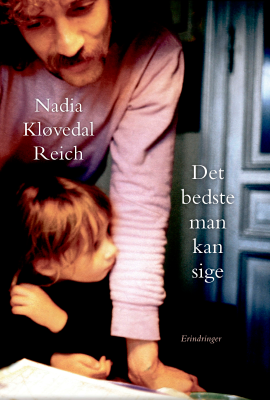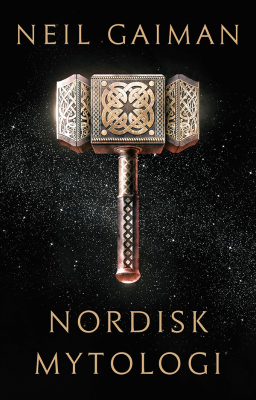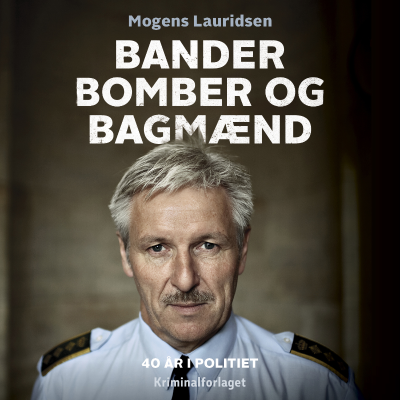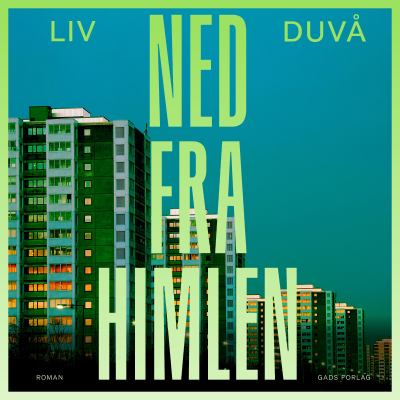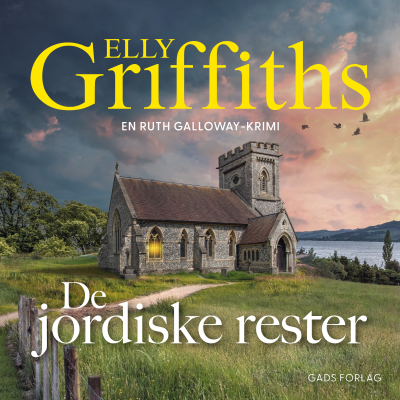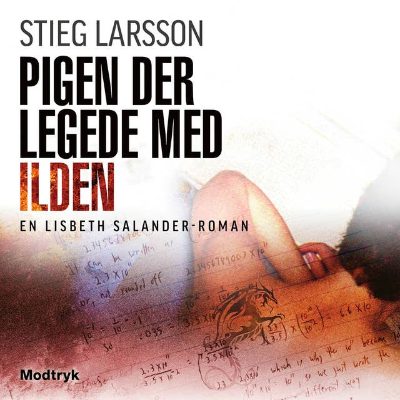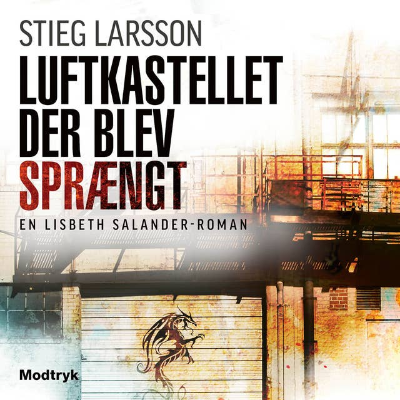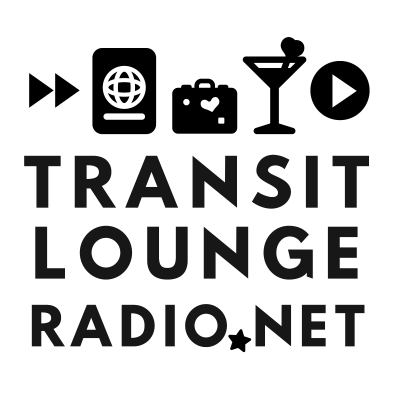
Transit Lounge
Podcast af Jodi Rose
Cultural Producer Jodi Rose invites creative people into the Transit Lounge to talk about life in perpetual motion and visions of the future. A series of internationally nomadic conversations about society, creativity & technology with makers, thinkers and doers. You never know who you'll meet in the Transit Lounge!
Prøv gratis i 7 dage
99,00 kr. / måned efter prøveperiode.Ingen binding.
Alle episoder
27 episoderKudzai M Mubaiwa talks about why there is a clear need for women to have resources for them to attain real freedom, with a leaning towards strong networks they can activate for tangible forms of wealth. The conversation emphasizes how economic empowerment brings options. Investor Saint + Future + Female + Zimbabwe + iZone Hub + open:fora ----more---- iZone Hub is a Zimbabwean Entrepreneurship, Innovation & Community Development Hub that serves women and youth makers, innovators, creatives, small business owners. We help them develop their enterprises in the digital age and promote creation over consumption. Financial & Digital Literacy Trainer | Personal Finance & Small Business ColumnistKudzai M Mubaiwa is an economic development professional and financial educator who is the founder of Investor Saint (Private) Limited. She is a cofounder of iZone Hub that serves youth and women entrepreneurs and innovators. Her passion is to increase the financial and digital literacy of individuals and small business owners – enabling them to create wealth and ultimately escape poverty – whilst leveraging the opportunity of the internet. Kudzai anchors a personal finance radio program and writes for a weekly business newspaper on small business. * Investor Saint [http://investorsaint.co.zw/] * iZone Hub [http://www.izonehub.org.zw] * Twitter: @kedukudzi [https://twitter.com/@kedukudzi] * @iZoneHub [https://twitter.com/izonehub] Open:fora Feminist Cafè (OFFC) AfricaOSH (Africa Open Science & Hardware) & AfricArXiv Art as Protest open:fora weeklong neighbourhood open culture event in Berlin's deep West. In times of increasing illiberal democracy (Orbàn), upload filters and Exiteering the pressures on our freedoms to act, share culture and make voices heard, reinforces the urgency to act on how we as global citizens can reclaim our collective res publica. Joining our team members from South Sudan and GIG (Global Innovation Gathering) network guests working for open cultures across five continents, open:fora invites all our neighbours, friends, students, activists and all those interested in creating resonant open cultures, technologies and ecologies in celebrating with us! Hosted by r0g_agency for open culture and critical transformation gGmbH and Open Source Ecology Germany e.V., open:fora offers an opportunity to engage with, build and discuss that which drives critical positions on open technologies, media literacy and capacity building not only at home, but in the challenging post-conflict environments our organisations often work in. STEAM (Science Tech Engineering Art Math), #ASKotec (Access to Skills and Knowledge – open tech emergency case), PAPERPCB (symbiotic synthesizers), Open:fora Feminist Cafè (OFFC), MMN - Migrant Media Networks, AfricaOSH (Africa Open Science & Hardware), #defyhatenow, AfricArXiv, Heteropia, and Art as Protest are some of codeplay key words marking a range of activities that ALL are invited to join. * twitter: @intertwilight [https://twitter.com/intertwilight] * facebook: opencultureagency [https://www.facebook.com/opencultureagency/] * programm: https://www.open-fora.org/ [https://www.open-fora.org/] open:fora supported by #GuerrillaFoundation [https://guerrillafoundation.org/] Thank you for tuning in, we hope you enjoyed listening as much as we did talking! Transit Lounge Radio is 100% independently produced, and ad-free. Your generous support, event invitations and sharing to community networks will help to keep the conversation free-flowing! * Support independent radio! * Donate [http://paypal.me/transitloungeradio] & keep the conversation flowing * Hang out in the Transit Lounge on facebook [https://www.facebook.com/transitloungeradio/] * Reviews and stars on iTunes [https://itunes.apple.com/au/podcast/transit-lounge/id1394226008] make us happy * Listen on the TLR YouTube Channel [https://www.youtube.com/channel/UCjJn_xmMo2IFyT1bdIG9Bkw] * Subscribe to TLR RSS [https://transitloungeradio.podbean.com/feed.xml] Feed * Invite Transit Lounge Radio to your event! * signal at transitloungeradio dot net tags: r0g_agency, open-fora, guerrilla foundation, open culture, Berlin, transit lounge, radio, podcast, conversation, Kudzai Mubaiwa, izonehub, investorsaint, Zimbabwe, women, economy, finance, empowerment, business, incubator, start-up
Friedrich Lindenberg talks me through the investigative journalism data tools developed by the Organized Crime and Corruption Reporting Project (OCCRP) and details of the Azerbaijani Laundromat. He is optimistic about the potential for lasting and significant structural change to dismantle the complex financial industries that support organised crime & money laundering worldwide. We agree on the importance of pirate radio! Organised Crime + Money Laundering + Data Journalism + OCCRP + #DNL15 ----more---- Data Team Lead, OCCRP [http://occrp.org], Organised Crime and Corruption Reporting Project, DE Friedrich Lindenberg leads the data team at OCCRP [https://www.occrp.org/staff]. He is responsible for the development of OCCRP Data and supports ongoing investigations where data analysis is needed. In 2014/2015, Friedrich was a Knight International journalism fellow with the International Center for Journalists, working with the African Network of Centers for Investigative Reporting (ANCIR), and in 2013 he was a Knight-Mozilla Open News fellow at Spiegel Online in Hamburg. Prior to that, Friedrich was an open data activist, and worked to promote the release of government information about public finance, lobbying, procurement and law-making across the world. * Twitter: @pudo [http://twitter.com/pudo] * OCCRP: Azerbaijani Landromat [https://www.occrp.org/en/azerbaijanilaundromat/] * OCCRP: The Russian Laundromat Exposed [https://www.occrp.org/en/laundromat/] * OCCRP: Investigative Tools [https://investigativedashboard.org/] (Find online sources / Search for leads / Map your investigation) * OCCRP: Database [https://data.occrp.org/] for Researchers (145 Million entries) * OCCRP: Data Visualisation Tools [https://vis.occrp.org/] (for investigators) * Guardian: Everything about the Azerbaijani Laundromat [https://www.theguardian.com/world/2017/sep/04/everything-you-need-to-know-about-the-azerbaijani-laundromat] * Reuters: National Crime Agency Account Freezing Order [https://www.reuters.com/article/britain-moneylaundering-azerbaijan/britain-freezes-bank-account-linked-to-azerbaijani-laundromat-idUSL8N1YH5E5] The Organized Crime and Corruption Reporting Project [https://occrp.org/] (OCCRP) is an investigative reporting platform formed by 40 non-profit investigative centers, scores of journalists and several major regional news organizations around the globe. Our network is spread across Europe, Africa, Asia and Latin America. We teamed up in 2006 to do transnational investigative reporting and promote technology-based approaches to exposing organized crime and corruption worldwide. We help journalists anywhere to trace people, companies and assets across the globe. Our team has worked on dozens of award-winning investigations in different regions. Their support is free for reporters from anywhere in the world. DARK HAVENS PANEL LEAKING MASSIVE DATASETS: Security, Openness, and Collective MobilisationRyan Gallagher (Investigative Reporter & Editor, The Intercept, UK) Friedrich Lindenberg (Data Team Lead, OCCRP, Organized Crime and Corruption Reporting Project, DE) Moderated by Tatiana Bazzichelli (Director, Disruption Network Lab, IT/DE) This panel poses issues of security and openness related to the analysis of data leaks and strategies of indexing data, to journalists, technical experts, researchers, and the larger civic society. In the case of the Panama Papers (April 2016) 11.5 million financial and legal records were leaked in 2015 from the Panama-based law firm Mossack Fonseca; those were followed by the Bahamas Leaks (September 2016), where 1.3 million internal company register files were leaked; later, the Paradise Papers (November 2017) were a set of 13.4 million leaked confidential electronic documents about offshore investments. This huge amount of information was all leaked to the Süddeutsche Zeitung reporters Frederik Obermaier and Bastian Obermayer, who shared it with the Washington-based International Consortium of Investigative Journalists (ICIJ) who coordinated a worldwide investigation. Ryan Gallagher (The Intercept) and Friedrich Lindenberg (Organized Crime and Corruption Reporting Project, OCCRP) discuss the ethics of massive data leaks, security and secrecy vs. openness and transparency, as well as source protection and collective mobilisation in the analysis of the material. DARK HAVENS Confronting Hidden Money & Power#DNL15 DARK HAVENS brings together people from around the world who have been part of global investigations and leaks, have blown the whistle on corporations, been put on trial, and who have taken severe personal risks to confront hidden money and power. 15th conference of the Disruption Network Lab [http://disruptionlab.org]. Curated by Tatiana Bazzichelli. In cooperation with Transparency International. * Disruption Network Lab: Dark Havens [https://www.disruptionlab.org/dark-havens] * Twitter: @disruptberlin [https://twitter.com/disruptberlin] Thank you for tuning in, we hope you enjoyed listening as much as we did talking! Transit Lounge Radio is 100% independently produced, and ad-free. Your generous support, event invitations and sharing to community networks will help to keep the conversation free-flowing! * Support independent radio! * Donate [http://paypal.me/transitloungeradio] & keep the conversation flowing * Hang out in the Transit Lounge on facebook [https://www.facebook.com/transitloungeradio/] * Reviews and stars on iTunes [https://itunes.apple.com/au/podcast/transit-lounge/id1394226008] make us happy * Listen on the TLR YouTube Channel [https://www.youtube.com/channel/UCjJn_xmMo2IFyT1bdIG9Bkw] * Subscribe to TLR RSS [https://transitloungeradio.podbean.com/feed.xml] Feed * Invite Transit Lounge Radio to record conversations at your event: * signal at transitloungeradio dot net #DNL15, Transparency, Panama Papers, investigative journalism, tax justice, offshore tax havens, disruption, network, Dark Havens, Disruption Network Lab, journalism, treasure islands, finance curse, offshore tour operator, Paradise Papers, Lux Leaks, whistleblower, UBS, ICIJ, OCCRP, Berlin, transit lounge, radio, podcast, conversation
Simon Shuster talks in the Transit Lounge at Dark Havens about the importance of the work journalists do as the immune system of a society. "Investigative journalists expose things most people would agree we do not want – organised crime, corruption, illicit wealth and inequalities." As journalists bring these secrets to light, it's important for people to understand and hear what we do, to have the media literacy to understand the kinds of conversations and complexity that goes into dealing with a story, and the synergy between journalists and activists in civil society to push for change. Tax Havens + Investigative Journalism + Time Magazine + Berlin + #DNL15 ----more---- Simon Shuster (Berlin Reporter for TIME, RU/DE)Simon Shuster has been the Berlin bureau chief of Time Magazines since 2013, responsible for coverage of Central and Eastern Europe. Born in Moscow and raised in San Francisco, his work in the last few years has focused on the European refugee crisis, the rise of right-wing populism and Russian hybrid warfare from Ukraine to the US. @shustry [https://twitter.com/shustry] Articles by Simon Shuster [https://muckrack.com/simon-shuster/articles]It's Business as Usual [http://time.com/5569355/sudan-bashir-russia-mining/] for Russians in Sudan, Despite Bashir's Fall How Putin Built a Ragtag Empire of Tyrants [http://time.com/5564173/how-putin-built-russian-empire/] and Failing States She Was Next in Line to Be the President. He Plays One on TV. Who Will Win Ukraine's Election [http://time.com/5560219/who-will-be-the-next-leader-of-ukraine/]? (spoiler alert: the comedian) DARK HAVENS Confronting Hidden Money & Power#DNL15 DARK HAVENS brings together people from around the world who have been part of global investigations and leaks, have blown the whistle on corporations, been put on trial, and who have taken severe personal risks to confront hidden money and power. 15th conference of the Disruption Network Lab. Curated by Tatiana Bazzichelli. In cooperation with Transparency International. * Disruption Network Lab: Dark Havens [https://www.disruptionlab.org/dark-havens%20] * Twitter: @disruptberlin [https://twitter.com/disruptberlin] * Artistic Director and Curator: Tatiana Bazzichelli * Community Director: Lieke Ploeger * Programme Managers: Daniela Silvestrin, Nada Bakr, Monti Harmony Thank you for tuning in, we hope you enjoyed listening as much as we did talking! Transit Lounge Radio is 100% independently produced, and ad-free. Your generous support, event invitations and sharing to community networks will help to keep the conversation free-flowing! * Support independent radio! * Donate [http://paypal.me/transitloungeradio] & keep the conversation flowing * Hang out in the Transit Lounge on facebook [https://www.facebook.com/transitloungeradio/] * Reviews and stars on iTunes [https://itunes.apple.com/au/podcast/transit-lounge/id1394226008] make us happy * Listen on the TLR YouTube Channel [https://www.youtube.com/channel/UCjJn_xmMo2IFyT1bdIG9Bkw] * Subscribe to TLR RSS [https://transitloungeradio.podbean.com/feed.xml] Feed * Invite Transit Lounge Radio to record conversations at your event: * signal at transitloungeradio dot net #DNL15, Transparency, Panama Papers, investigative journalism, tax justice, offshore tax havens, disruption, network, Dark Havens, Disruption Network Lab, journalism, treasure islands, finance curse, offshore tour operator, Paradise Papers, Lux Leaks, whistleblower, UBS, ICIJ, OCCRP, Berlin, transit lounge, radio, podcast, conversation, Simon Shuster, Time Magazine
HOW TO SHORT CAPITALISM: THE CRYPTO-POLITICAL ECONOMY OF ECSAEconomic Space Agency [https://economicspace.agency/] (ECSA) is building the next generation network infrastructure for programmable economies. Most blockchain and distributed ledger technologies applications are oriented toward the creation of distributed markets, reinforcing rather than disrupting oligarchic concentration of wealth over time and questioning what “value” is actually traded. ECSA offers something different: a fully integrated, commons-oriented approach to cryptoeconomy. Economic Space + Cryptophilosophy + Post-Capitalism + Speculative Economy + Fabulation I met with Erik Bordeleau at the ECSA 'Economic Space Design Program' in the Haus der Statistik [https://hausderstatistik.org/] Werkstatt in Berlin to find out exactly what is 'Economic Space' and how we can claim agency. The readings and notes come from the subsequent 'Token Logic Design [https://www.volksbuehne.berlin/en/programm/7988/school-of-disobedience-art-and-the-blockchain-token-logic-design-sessions-1]' seminar series with Erik at the School of Disobedience, Art and the Blockchain. ----more---- Edited transcript: JR: Can you tell me what exactly the Economic Space Agency is? I imagine intergalatic cryptocurrencies… EB: As it exists now comes from an initiative called ‘Robin Hood Hedge Fund Coop’ making captures on the actual financial markets. We were able to gather some money and redistribute it to projects that we found interesting. Commons-oriented projects essentially. And then blockchain and distributed ledger technologies came in. We were being Robin Hoods of the traditional markets, which can only go up to a certain point. Then with distributed ledger technologies, you can start to imagine creating new markets or new financial stratas that you can start operating with. The way I understand it is the opportunity to create a thousand financial plateaus, from which you can start deterritorializing [https://en.wikipedia.org/wiki/Deterritorialization] finance as it exists, and start making value a little bit more multi-dimensional. One of the things we used to say at ECSA is that we are stuck in a mono economy, where everything gets valued within a very narrow set of coordinates, which we call capitalism. Which generates as all we know tremendous externalities. The way forward towards a post-capitalist economy needs to be towards recognising all these values that are considered external to our economic system. JR: What is fabulation? EB: Fabulation is a way of saying that you can't think of the 'real' economy, as opposed to the speculative economy. The economy is always speculative, all the way down. That's not something to judge, or it's not something to deplore. It's something to accept, to deal with, so we need to accept that we are also part of self-fulfilling prophecies or processes. We are part of that. We're a little bit lunatic at times, we are entertaining ideas that seem completely incredible. But it's part of the game. The economic game is fuelled with dreams, and fabulation is a term to name the passage from the virtual to the actual. As one philosopher I really like says 'Only people who are dreaming can modify someone else's dream'. You can't just go up to someone and make them change their minds. You have to be meeting people in the space where they dream, they're also dreaming of something... So, the open office was organised here at Haus der Statistik which is a dream itself. But a dream with a fantastic reality.. I would like to have this collective adventure keep on going, and grow organically. So there's a mix of fantasy, craziness, crazy ambition that we express collectively, but I also want other types of intelligences that are more grounded, closer to the granular aspects of all the relationality of our lives. I want that to be more and more part of our process. Because that's how something sustainable, organic will sustain in the future. That's really important. We're coming in with quite radical ideas but they need to be translated, converted into practices of different kinds, and that's what I envision for the future. A very multi-dimensional proliferating set of practices that share some sort of common financial or alter-financial understanding, so that we can federate when necessary for a common agenda, but otherwise most of the time developing these practices for their own sake. Economic Space Agency is a group of radical economists, software architects, finance theorists, game designers, critical thinkers and artists, coming together to reimagine the future of the economy. Our crew in Berlin includes, among others: Akseli Virtanen, Pekko Koskinen, Jackie Vu, James Foley, Jon Beller, Joel E. Mason, Erik Bordeleau, Fabian Bruder, Emma Stenström, Emanuele Braga, Tirdad Zolghadr, Matthias Einhoff and more. *** Erik BordeleauErik Bordeleau is researcher at the SenseLab (Concordia University, Montreal), fugitive finance planner at the Economic Space Agency (ECSA) and affiliated researcher at the Center for Arts, Business & Culture of the Stockholm School of Economics. His work articulates at the intersection of political philosophy, media and financial theory, contemporary art and cinema studies, with a marked interest for the speculative turn and the renewal of the question of the possible in contemporary thinking. He recently taught a seminar series in critical cryptoeconomics at the School of Disobedience at Volksbühne (Berlin) and is currently working on the creation of an MA program in Cryptoeconomics at the Global Center for Advanced Studies (GCAS). With Saloranta & De Vylder, he is developing The Sphere, a p2p community platform for self-organization in the performing arts, which is also part of ABC’s research projects. He is based in Berlin. Erik Bordeleau PhD ECSA on Medium [https://medium.com/@Ritornello] Economic Space Agency (ECSA)ECSA STACK [https://economicspace.agency/] Gravity:: Distributed Runtime Gravity provides secure computational containment, serialization, persistence, networking, and hardware interfaces to be utilized upwards throughout the ECSA stack. * Gravity Protocol * The Gravity protocol provides event ordering, scaling, strong security, fail recovery and high availability. It ensures network wide consistency, and enables distributed atomic transactions. Space:: Organizational Expression Space is a grammar for the creation of programmable organizations which can seamlessly combine models of governance and economy. It provides Gravity with an organizational programming environment, utilizing Gravity's implementation of object capabilities. * Space Protocol:: Organizational Interoperability * The Space Protocol allows the organizational forms of Space to interoperate, regardless of their implementation substrate, establishing fully organizable economic networks. Economic Space:: Value Expression ECSA's offer:: networked value production, distribution and measurement through a new economic abstraction:: The Economic Space. * Economic Space Protocols:: Economic Interoperability * Protocols and models such as distributed exchange, trading units, synthetic indexing and network derivatives enable the creation of organizational forms with a shared economic grammar. Economic Space Agency (Medium.com) * A global collective working to remake the DNA of the economy [https://medium.com/@ecsa_team]. * Programmed decentralised commons production [https://medium.com/economic-spacing/programmed-decentralised-commons-production-2b1fac7cf9a8], April 2017 Video: After Scarcity"A compelling economic sci-fi is mathematic disguised in a well-crafted storyline." * SCREENING + DISCUSSION around "After Scarcity [https://dis.art/after-scarcity/info]" * (Bahar Noorizadeh, 2019) with Stefan Heidenreich and Economic Space Agency. * Haus der Statistik, Monday 6th May, 19:30 to 22:00 pm For many of us, computer technology seems almost inseparable from the corporate hypercapitalism of Silicon Valley. In "After Scarcity", Bahar Noorizadeh explores the soviet cybernetic past in search of our possible post-neoliberal future. "How might we use computation to get us out of our current state of digital feudalism and towards new possible utopias? After all, what would Vladimir "socialism is electricity plus statistic" Lenin have to say about blockchain?" This fascinating 30 min. sci-fi essay film will act as a free indirect entry point for a wider discussion around the disruptive potential of crypto- and cyber-economies. Including: Stefan Heidenreich's recent work around a non-money economy partly based on algorithmic matching formulas, and ECSA's general proposal to build a financial and computational infrastructure for post-hayekian economy. “Flying through swarms of floating dots outlining monasteries and city streets, After Scarcity flashes through decades of history to propose the ways contingent pasts can make fictive futures realer, showing us that digital socialism was inbred into the communist revolution and that computation doesn’t mean we’re condemned to today’s tyranny of total financialization.” Complementary readingsImagine there's no money [http://networkcultures.org/moneylab/2018/03/30/imagine-theres-no-money-dialogue-between-stefan-heidenreich-geert-lovink/]: dialogue between Stefan Heidenreich & Geert Lovink Geert Lovink: German media theorist Stefan Heidenreich has produced a concise proposal for a ‘non-monetary economy’. The book is entitled */Money/* and came out late 2017 with Merve Verlag in Berlin. Excerpts in English can be found at the Transmediale website [https://transmediale.de/content/for-a-non-money-economy]. There we find the following description of Heidenreich’s project: ‘Given complex information infrastructures that have already been developed for documenting transactions, tying consumer habits to identities, and accurately predicting future exchanges, the substructure of a new kind of economy is now in place.’ March 2018 * How Not to Network a Nation: The Uneasy History of the Soviet Internet [https://mitpress.mit.edu/books/how-not-network-nation]. Peters, B. (2016) Cambridge: MIT Press. * Red Plenty [https://www.faber.co.uk/9780571225248-red-plenty.html]: Inside the Fifties’ Soviet Dream. Spufford, F. (2010). London: Faber & Faber. * Review by Philip Cunliffe [https://marxandphilosophy.org.uk/reviews/7639_red-plenty-review-by-philip-cunliffe/] In the fifties, Soviet economic growth made it seem that the USSR might still win on the front of delivering material abundance to the masses: ‘Moscow would out-glitter Manhattan, and every Lada would be better engineered than a Porsche’... The heroes of Spufford’s Soviet dream are an entire generation of peasants brutally torn off the land and propelled on an astonishing ascent in the breakneck process of Soviet industrialisation. Dictionary of Now #9 | Philip MirowskiMarkets as Computer Programs in a Theory of Markets Video introduction to Mirowski's work on Hayek [https://youtu.be/sMDrVR59mTQ] MONEYLABResources [http://networkcultures.org/moneylab/resources/] A constantly-updated resourceful collection of theories, media discourse, creative projects and events focused on alternative revenue models. Of central importance to this project is the formation of a collaborative network of researchers, artists, developers, engineers, and others interested in sharing, coining, critiquing, and ushering in alternative network economies. We are always looking for radical submissions that closely reflect the stated aim of the MoneyLab: Economies of Dissent project. BITCOIN AND BLOCKCHAIN * https://bitcoinembassy.nl/ [https://bitcoinembassy.nl/] * https://bitcointalk.org/ [https://bitcointalk.org/] * https://en.bitcoin.it/wiki/Main_Page [https://en.bitcoin.it/wiki/Main_Page] * https://www.reddit.com/r/Bitcoin/ [https://www.reddit.com/r/Bitcoin/] * https://www.ethereum.org/ [https://www.ethereum.org/] * http://www.coindesk.com/ [http://www.coindesk.com/] * Proof of Existence [https://www.proofofexistence.com/] 3. COMMUNITY AND ART PLATFORMS * http://www.furtherfield.org/artdatamoney/ [http://www.furtherfield.org/artdatamoney/]– collective artistic investigation into use of blockchain for creativity and the commons * https://www.ascribe.io/ [https://www.ascribe.io/]– Blockchain based art distribution platform * https://www.nextnature.net/tag/alternative-currencies/ –A ten part series [https://www.nextnature.net/tag/alternative-currencies/] exploring the design of an invisible technology: money. * Art Commons [http://www.artcommons.org/]– art sharing platform and community in NY, US * BitcoinCloud [http://vimeo.com/34926988]– interactive art and media installation byArtistic Technology Lab [http://artistictechnology.at/](AT) * Dadara [http://www.dadara.nl/](NL) * Debt Fair [http://www.debtfair.org/index] (US) – a decentralized art market where art collectors can purchase artworks directly from the artists, which use it to repay debts. * Kunst Reserve Bank [http://www.kunstreservebank.nl/](NL) * Lanchonete [http://www.lanchonete.org/](BR) * Mon3y.us [http://www.mon3y.us/]– Online exhibition featuring Digital & Net.Art on the subject of Money & Error * Time/bank e-flux [http://e-flux.com/timebank/](US) * Timebank CC [http://timebank.cc/](NL) * Schwartzbank [http://www.schwarzbank.org/](DE) * Amplitive Art [http://www.ampliativeart.org/] AragonThe Aragon [https://aragon.org/] project is a community with the mission to empower freedom by creating tools for decentralized organizations to thrive. Aragon lets you freely organize and collaborate without borders or intermediaries. Create global, bureaucracy-free organizations, companies, and communities. The world’s first digital jurisdictionAragon organizations are not only great because they are decentralized, global and unstoppable. They will also benefit from the Aragon Network [https://aragon.org/network], the world’s first digital jurisdiction. Decentralized organizations change the way we think about organizations. The Aragon Network will change the way you think about jurisdictions and governments. Aragon, The Film [https://youtu.be/AqjIWmiAidw]We are building Aragon because we believe decentralized organizations can solve the world’s worst problems. * Come chat with us at the Aragon Chat [https://aragon.chat] * Explore the Aragon Wiki [https://wiki.aragon.one] * Follow Aragon on Twitter [https://twitter.com/AragonProject] * Subscribe to the Aragon subreddit [https://www.reddit.com/r/AragonProject/] * Contribute to Aragon at GitHub [https://github.com/aragon] * Subscribe to Aragon Monthly Newsletter [https://monthly.aragon.one/newsletter/] * Video production company Metamension [http://metamension.com/portfolio/aragon/] Pando NetworkPando Network [https://medium.com/pando-network]: infrastructure for distributed creation What is Pando?Pando [https://medium.com/pando-network/pando-b5e1a2af3152] is a fully distributed and immutable VCS based on top of IPFS, aragonOS and the ethereum blockchain. Developed by the Ryhope Network’s team, it intends to become a community-driven standard. Its goal is to provide content creators, and mostly software developers, with a universal open-source versioning, cooperation and archiving layer. Pando has been crafted with the intent to be faithful to git’s philosophy while creating a bridge towards blockchain’s and ethereum’s rationale: a common good providing one more brick towards the decentralization of societies and the empowerment of human beings. That’s why we are building pando as an open source and standalone tool. No token, no ICO: just a medium to provide the blockchain community with a way to self-organize its development and its growth — though the Ryhope Network will use an homemade token to offer an income to free and open contents. Decentralized Autonomous Literary Organization [https://medium.com/pando-network/decentralized-autonomous-literary-organization-a-decentralization-of-literature-c985eee10931]: a decentralization of literaturePando Network, by inaugurating both a protocol and an interface capable of hosting and organizing collaborative creation, also opens great perspectives for literature. More broadly, should we not consider the possibilities opened up by the Ethereum blockchain, Aragon and Pando on the decentralization of literature, understood both as a historical mode for the valorization, diffusion and distribution of works, and as writing activities that govern these works? CIRCLESA self-issuance based cryptocurrency basic income Circles [https://joincircles.net] is an electronic cryptocurrency with the aim to create and distribute a globally accessible Universal Basic Income. In traditional debt-based currencies one sells goods, borrows money, or invests working power to receive money. With Circles, one receives money unconditionally to engage with their community, creating value through offering goods or services. Cryptoeconomics Is HardAleksandr Bulkin [https://blog.coinfund.io/cryptoeconomics-is-hard-ad401b2428b9] We are not used to designing economic structures. This is a wholly new territory. This article is an attempt to illustrate some very subtle problems people encounter on this road, often well after fixing them stops being easy or even possible. Economics is hard in general. The reason is that economics studies interactions in a very large group of people and people are not something you can model mathematically very well. But traditional economics works because it studies behaviors in a long-established system which changes very slowly. The way mainstream economic structures work is a product of years of research, governance, and social dynamics. In some sense you can say it was designed but a better way to look at it is that it was partly designed, partly discovered, and partly evolved on its own. So cryptoeconomics is harder, precisely because the economics of every single cryptoasset is designed from inception. This includes supply, inflation, rewards, fines, and so on. Cryptoeconomics of a token is a hybrid between rules programmatically implemented on a blockchain and the entire world of interactions real human beings have with it. Designing good rules necessarily entails understanding the way humans will interact with them. Talking tokenThe full guide for understanding a token role [https://hackernoon.com/talking-token-the-full-guide-for-understanding-a-token-role-in-a-token-enabled-ecosystem-fd4de21778fa] in a token-enabled ecosystem Today seeing a yet another blockchain-powered project promising to change how the old world works is not a news. None of such projects fail to emphasize that “token is an essential part of the ecosystem”. Yet, a rare project convincingly explains “why it needs a token in the first place.” Often times a seemingly simple answer leads to countless nuances and triggers a lot of consequences. A token is a tool that ignites and powers a “digital cooperative” around some activity. The incentives it carries determine whether the cooperative outlives its creators (the token issuers) or becomes a facade for speculative activities with no one giving a damn what the token is needed for. Measuring Value in the Commons-Based Ecosystem * Bridging the Gap Between the Commons and the Market * Primavera De Filippi and Samer Hassan * (MoneyLab reader [https://papers.ssrn.com/sol3/papers.cfm?abstract_id=2725399] #1) Lovink, G., Tkacz, N. (eds.) * The MoneyLab Reader. Institute of Network Cultures, University of Warwick, 2015 * January 31, 2015 Commons-based peer-production (CBPP) constitutes today an important driver for innovation and cultural development, both online and offline. This led to the establishment of an alternative, Commons-based ecosystem,based on peer-production and collaboration of peers contributing to a common good. Yet, to the extent that this operates outside of the market economy, we cannot rely on traditional market mechanisms (such as pricing) to estimate the value of CBPP. We present here a system - which we will name Sabir - that can resolve some of the most recurrent problems encountered within CBPP communities. The Sabir system is composed of three layers that will help us: (1) Understanding the social value - as opposed to market value - of different CBPP communities, so as to compare them to one another. (2) Identifying the value generated by individuals contributing to the Commons and evaluating it through a common denominator of value. (3) Creating an interface between the market and the CBPP ecosystem so that the two can interact, and benefit from each other. Keywords: commons-based peer-production, alternative economies SELF-CAPITAL (1, 2, 3)Self-capital [https://youtu.be/_ATnDUzYilg] is an ongoing video series by Melanie Gilligan. Smart art tv series to learn to see and feel like Capital. First shown Sept. 2009. POPULAR UNRESTPopular Unrest [http://popularunrest.org/] is a multi-episode drama set in a future much like the present. Here, however, all exchange transactions and social interactions are overseen by a system called ‘the Spirit’. A rash of unexplained killings have broken out across the globe. They often take place in public but witnesses never see an assailant. Just as mysteriously, groups of unrelated people are suddenly coming together everywhere, amassing new members rapidly. Unaccountably, they feel a deep and persistent sense of connection to one another. The film explores a world in which the self is reduced to physical biology, directly subject to the needs of capital. Hotels offer bed-warming servants with every room, people are fined for not preventing foreseeable illness, weight watching foods eat the digester from the inside and the unemployed repay their debt to society in physical energy. If on the one hand this suggests the complete domination of life by exchange value do the groupings offer a way out? Global Center for Advanced StudiesCrypto-Economics Department [https://gcas.ie/erik-bordeleau] GCAS College Dublin is partnering with the Economic Space Agency (ECSA), a collective of radical economists, software engineers, artists, game designers, social theorist and crypto-technologists working together to warp economic spacetime. As part of the collaboration between GCAS and Economic Space Agency (ECSA), Erik Bordeleau will be in charge of creating an MA in cryptoeconomics at GCAS with fellow ECSA agent and GCAS faculty member, Tere Vadén. Thank you for tuning in, we hope you enjoyed listening as much as we did talking! Transit Lounge Radio is 100% independently produced, and ad-free. Your generous support, event invitations and sharing to community networks will help keep the conversation free-flowing! * Support independent radio! * Donate [http://paypal.me/transitloungeradio] & keep the conversation flowing * Hang out in the Transit Lounge on facebook [https://www.facebook.com/transitloungeradio/] * Reviews and stars on iTunes [https://itunes.apple.com/au/podcast/transit-lounge/id1394226008] make us happy * Listen on the TLR YouTube Channel [https://www.youtube.com/channel/UCjJn_xmMo2IFyT1bdIG9Bkw] * Subscribe to TLR RSS [https://transitloungeradio.podbean.com/feed.xml] Feed * Commission Transit Lounge Radio [https://transitloungeradio.net/] for your event * signal at transitloungeradio dot net
Frederik Obermaier on global crime & collaborative reporting, the demise of the 'lone wolf' investigative journalist, Panama Papers cocktails, writing that email to Vladimir Putin, and a thank you message to John/Jane Doe for the 11.5 million files contained in the Panama Papers. The stories are global, crimes are global and journalism needs to be global: Frederik dishes on the complexities of working collaboratively with 400 journalists from 80 countries over a year to publish the Panama Papers. Tax Havens + Investigative Journalism + Collaboration + Panama Papers + #DNL15 ----more---- Frederik Obermaier Investigative journalist, Süddeutsche Zeitung [http://sueddeutsche.de], DE "It was a difficult process, to be honest. Our editor-in-chief (Wolfgang Krach) was a big fan of collaborations, so he encouraged us to share the data. It think he's a visionary in this aspect. We also had colleagues who asked us: 'Frederik, Bastian are you stupid? You're sharing a scoop! Why should you?' Sometimes they're in this old lonely wolf mindset, journalists, especially investigative journalists being the lonely wolf not sharing anything even with his outlet... always secretive, always hunting for the scoop. These times are over in journalism. I think in investigative journalism, it's now the pack, the power of the pack. And it's only logical because crime is not limited to one country anymore. We're speaking about transnational organised crime groups. So it's only logical to team up as journalists to tackle this problem, to uncover it. And I think we need more. We do see a lot of collaborations currently in journalism, and I think that's good. The more, the merrier!" Frederik Obermaier is a Pulitzer-Prize winning investigative reporter for the Munich-based Süddeutsche Zeitung, Germany’s leading broadsheet. He is one of the two reporters first contacted by the anonymous source of the Panama Papers, the leaked documents that prompted a global investigation involving hundreds of journalists. He also initiated the Paradise Papers-revelations. Obermaier is a member of the International Consortium of Investigative Journalists, ICIJ.org. Photo by Stefanie Preuin/SZ If you have data, contact Frederik Obermaier using a secure channel & encrypted communication. Please note that unencrypted email, skype and phone calls are highly susceptible to being monitored or accessed. * Contact details on his website [https://www.frederikobermaier.com/contact/] * Email encryption via PGP [http://bit.ly/1AfEXOX] * Threema [https://threema.ch/en]: FPN4FKZE Documentary [http://PanamaPapersDoc.com]: The Panama Papers (2018), directed by Alex Winter (TRAILER) [https://youtu.be/f3pWbgp_-j0] “We’ve said it again and again: some stories are too big, too complex and too global for lone-wolf muckrakers or even individual news organisations to tackle. We believe collaboration is the wave of the future in global journalism. Pooling resources and sharing information is a powerful way to investigate and expose stories that politicians, corporations and organized criminals are determined to keep in the shadows.” Gerard Ryle, Director ICIJ * Panama Papers wins Pulitzer Prize [https://www.icij.org/blog/2017/04/panama-papers-wins-pulitzer-prize/] * How the Panama Papers were unwrapped [https://www.timesofmalta.com/articles/view/20170416/local/how-the-panama-papers-were-unwrapped-matthew-caruana-galizia-and.645281] * Reporting on The Panama Papers [https://www.frederikobermaier.com/panama-papers/] * Reporting on The Paradise Papers [https://www.frederikobermaier.com/paradise-papers-1/] * The Panama Papers [https://oneworld-publications.com/the-panama-papers.html]: Breaking the Story of How the Rich and Powerful Hide Their Money, by Bastian Obermayer & Frederik Obermaier. The inside story from the journalists who set the investigation in motion. * ICIJ Investigations: Panama Papers [https://www.icij.org/investigations/panama-papers/] / Paradise Papers [/transitloungeradio/episode/%20https:/www.icij.org/investigations/paradise-papers/] * ICIJ Offshore Leaks Database [https://offshoreleaks.icij.org/] * OCCRP: Organized Crime & Corruption Reporting Project [https://www.occrp.org/en] * Forbidden Stories: Network of Journalists [https://forbiddenstories.org/our-network/] * Twitter: @f_obermaier [http://twitter.com/f_obermaier] PANAMA PAPERS: How the Rich and Powerful Hide Their MoneyWATCH VIDEO: DARK HAVENS KEYNOTE [https://youtu.be/rwZ7qNN5pdI] Frederik Obermaier (Investigative Journalist, Süddeutsche Zeitung, DE). Moderated by Max Heywood (Transparency International Global Outreach and Advocacy Coordinator, UK/DE). The Panama Papers began with a cryptic message from an anonymous whistleblower. “Hello, this is John Doe,” the source wrote. “Interested in data?” In the months that followed, the confidential source transferred emails, client data and scanned letters, from Mossack Fonseca, a notorious Panamanian law firm that has not only helped prime ministers, kings and presidents hide their money, but has also provided services to dictators, drug cartels, Mafia clans, fraudsters, weapons dealers, and regimes like North Korea or Iran. After the revelation several heads of governments had to step down, thousands of investigations were launched, approximately one billion $ recouped. The Panama Papers proved that there is a whole parallel world offshore in which the rich and powerful enjoy the freedom to avoid not just taxes but all kinds of laws they find inconvenient. In this Keynote, Süddeutsche Zeitung investigative journalist Frederik Obermaier reflects on the Panama Papers and their impact (arrests, changes in legislation etc.), as well as the crucial roles of whistleblowers and the need to protect them. In conversation with Max Heywood, the dialogue addresses what we learnt from The Panama Papers about political and economic power, what progress has been made against tax and dark havens, and how the Panama Papers have changed the way journalists think about and analyse tax havens. DARK HAVENS Confronting Hidden Money & Power#DNL15 DARK HAVENS brings together people from around the world who have been part of global investigations and leaks, have blown the whistle on corporations, been put on trial, and who have taken severe personal risks to confront hidden money and power. 15th conference of the Disruption Network Lab. Curated by Tatiana Bazzichelli. In cooperation with Transparency International. Disruption Network Lab: Dark Havens [https://www.disruptionlab.org/dark-havens] Twitter: @disruptberlin [https://twitter.com/disruptberlin] Thank you for tuning in, we hope you enjoyed listening as much as we did talking! Transit Lounge Radio is 100% independently produced, and ad-free. Your generous support, event invitations and sharing to community networks will help keep the conversation free-flowing! * Relax in the VIP Lounge [https://patron.podbean.com/transitloungeradio] * Hang out in the Transit Lounge on facebook [https://www.facebook.com/transitloungeradio/] * Reviews and stars on iTunes [https://itunes.apple.com/au/podcast/transit-lounge/id1394226008] make us happy * Listen on the TLR YouTube Channel [https://www.youtube.com/channel/UCjJn_xmMo2IFyT1bdIG9Bkw] * Subscribe to TLR RSS [https://transitloungeradio.podbean.com/feed.xml] Feed Invite Transit Lounge Radio to record a series of conversations at your world changing event: signal at transitloungeradio dot net #DNL15, Transparency, Panama Papers, investigative journalism, tax justice, offshore tax havens, disruption, network, Dark Havens, Disruption Network Lab, journalism, treasure islands, finance curse, offshore tour operator, Paradise Papers, Lux Leaks, whistleblower, UBS, ICIJ, OCCRP, Berlin, transit lounge, radio, podcast, conversation, Frederik Obermaier, Süddeutsche Zeitung
Prøv gratis i 7 dage
99,00 kr. / måned efter prøveperiode.Ingen binding.
Eksklusive podcasts
Uden reklamer
Gratis podcasts
Lydbøger
20 timer / måned














